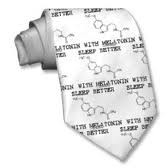Here are some tips on how to prevent some illnesses and improve health for everyone for a healthier aging process:
Antioxidant supplements such as Vitamins A, C, E, Selenium and Melatonin protect our cells by neutralizing free radicals, these atomic fragments cause cell damage and produce metabolic waste.
Vitamin A:
Several studies support the value of vitamin A in boosting immunity. It enhances T-helper cell type-2 (Th2) mediated responses which are necessary for fighting bacterial and parasitic infections. Vitamin A has also shown to be a potent stimulator of growth hormone production.
Therapeutic Daily Dose: 7,000 - 10,000 IU. You should speak to your doctor prior to taking vitamin A supplements if you are over 65 years of age, or if you are a woman who's pregnant or trying to conceive.
Foods rich in vitamin A include: Papaya, mangoes, green peas, tomatoes, peaches, red peppers, sweet potatoes, carrots, dark leafy greens, butternut squash, dried herbs, lettuce (dark colorful varieties), dried apricots, cantaloupe melon.
Vitamin C:
The majority of us know that vitamin C helps prevent and fight off colds, but it has many other health benefits also. Vitamin C raises HDL levels ("good" cholesterol) and prevents LDL ("bad" cholesterol) from oxidizing, which subsequently prevents the buildup of atherosclerotic plaque on the blood vessel wall, which contributes to cardiovascular disease. Vitamin C also lowers the risk of stroke.
Therapeutic Daily Dose: 1,000 - 2,000 mg. Check with your doctor before supplementing as some medical conditions preclude Vitamin C supplementation.
Foods rich in vitamin C include: Red and green hot chili peppers, guavas, red, yellow and green peppers, fresh herbs (thyme and parsley), dark leafy greens, broccoli, kiwi fruits, papayas, oranges and clementines, strawberries, black currants, sun dried tomatoes, fresh tomatoes, mangoes, red cabbage, cauliflower, turnip greens and pineapples.
Vitamin E:
This vitamin is a powerful antioxidant which is very important to cell membranes. For example vitamin E protects lung cells that are in constant contact with oxygen and white blood cells that help fight disease. However, there is also significant evidence that vitamin E protects against heart disease, cancer, strokes, cataracts and signs of aging.
Therapeutic Daily Dose: 400 - 1,200 IU. Vitamin E supplements must be natural as they are more potent and bioavailable than synthetic forms. Check with your doctor before taking vitamin E supplements as some medical conditions preclude vitamin E supplementation.
Foods rich in vitamin E include: Sunflower seeds, paprika and red chili powder, almonds, pine nuts, peanuts, dried herbs (basil and oregano), dried apricots, pickled green olives, cooked spinach, cooked taro root, wheatgerm oil, hazelnuts, flaxseed oil corn and canola oil, broccoli, soybean oil, pistachios, pecans, kiwis, mangoes, tomatoes, asparagus, and butternut squash.
Selenium:
Selenium is an essential trace element, necessary for growth and protein synthesis. It also helps to increase the effectiveness of vitamin E. It is necessary for correct function of the thyroid gland, and may help protect against free radical damage and cancer. Selenium deficiency can lead to joint and muscle pain, brittle hair and white spots on fingernails.
Therapeutic Daily Dose: 100 - 200 mg
Foods rich in selenium include: Brazil nuts, shellfish, liver, fish, sunflower seeds, bran (wheat, rice and oat), caviar, bacon and pork chops, lobster and crab and shrimp.
Melatonin:
Melatonin has really come into it's own recently. It is most commonly known as the sleep hormone. It is produced in the dark by the pineal gland in the brain. Melatonin supplementation has been shown to:
- Aid biological clock resetting of international and transcontinental travelers Helping to combat jet lag and restore restful sleep patterns in frequent flyers.
- Act as a natural sleeping aid as it does not suppress dream (REM cycle) sleep.
- Lowers blood cholesterol levels in people with high cholesterol counts.
- It eliminates free radicals, thereby demonstrating its value against heart disease, stroke and cancer.
- Improves sexual drive and performance.
Foods containing melatonin include: Oats, sweetcorn, rice, ginger, barley, tomatoes, bananas, radishes pineapples, apples, oranges, strawberries, kiwis, peppers and spinach, almonds and seeds.
However, the amount of melatonin in food is small so you may need to supplement. I advise to start with a low dose as some people find that they become irritable on higher doses. Start with 1 - 2mg at night before going to bed.






No comments:
Post a Comment